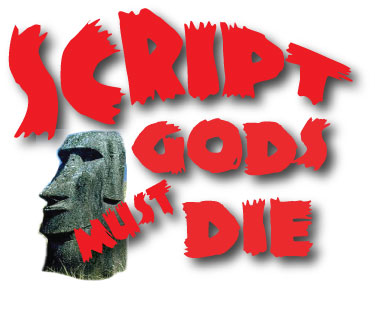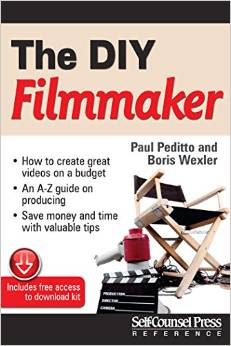- Avoid unnecessary parentheticals
Let the director direct and the actor act. Don’t presume to dictate the smallest gesture. No smiling, sighing, smirking or hand gestures that don’t directly impact plot.
The actor, when filming the scene on page 63, is not going to remember you wanted him to point with his right hand before the words: “Land, ho!”
- Avoid starts to, continues to, begins to.
Get to the verb.
Jimmy begins to eat the casino buffet food.
VS.
Jimmy digs into the $3.99 beef tripe extravaganza.
- Avoid mistaking they’re for their, to for too, its for it’s
Grammatical errors are deadly. Want to wave the red flag for the reader? Write this on Page 1:
They’re in the Deathly Hallows did the Darkness cast it’s Great Gloom upon Harry Potter…
- Avoid but–and in action lines
Trim out but and and from action lines. Use shorter sentences. Mundane as it sounds, use commas well.
- Avoid passive voice
Don’t be so busy concentrating on story and character that you forget basics, like using active verbs.
Avoid is walking, is jumping, is playing.
Walks, jumps, plays.
- Avoid underlining, bold, italics
Yes, I’ve read about the “new spec style” at the Page Screenwriting Awards (scroll down for the Dave Trottier link).
I would say avoid gimmickry if you can. Don’t get cute, don’t get fancy, unless there’s good reason for it.
- Avoid a too-early Point Of Entry
As you previously read here, Page 1 is valuable real estate. When you take your story back too far, it slows down the opening of your movie. Figure out the place in your story where we have to start, where the story won’t make sense without it. Where you start your movie is a critical decision. You want it to be logical, hit the ground running.
- Avoid exposition
DAVID Hi Pete. Nice weather we’re having…
PETER Nice? Reminds me of that Christmas I was stationed in Baghdad…
Fast forward, past the 2 page backstory war-is-hell monologue.
DAVID I see. Soooo…the usual soy latte?
Seek the visual, not verbal, solution.
- Avoid we see, we hear
If it’s in the action line, we see or hear it. It’s a given, why tax the reader’s eye with it?
- Avoid action paragraphs of more than five lines.
Give white space between paragraphs. Go vertical. Force the reader’s eye down the page, have him turning pages. Look to cut to a new paragraph where the camera would naturally cut. For example: When the focus of the scene shifts from one character to another.
- Avoid specific soundtrack songs
You’ve got music in mind for your Boy Scouts vs. Zombies script so you write Dead Man’s Party by Oingo Boingo into your action line. Unless you have the money for Oingo Boingo, I wouldn’t. 80s Rock works just fine as description, unless you can pay the piper.






